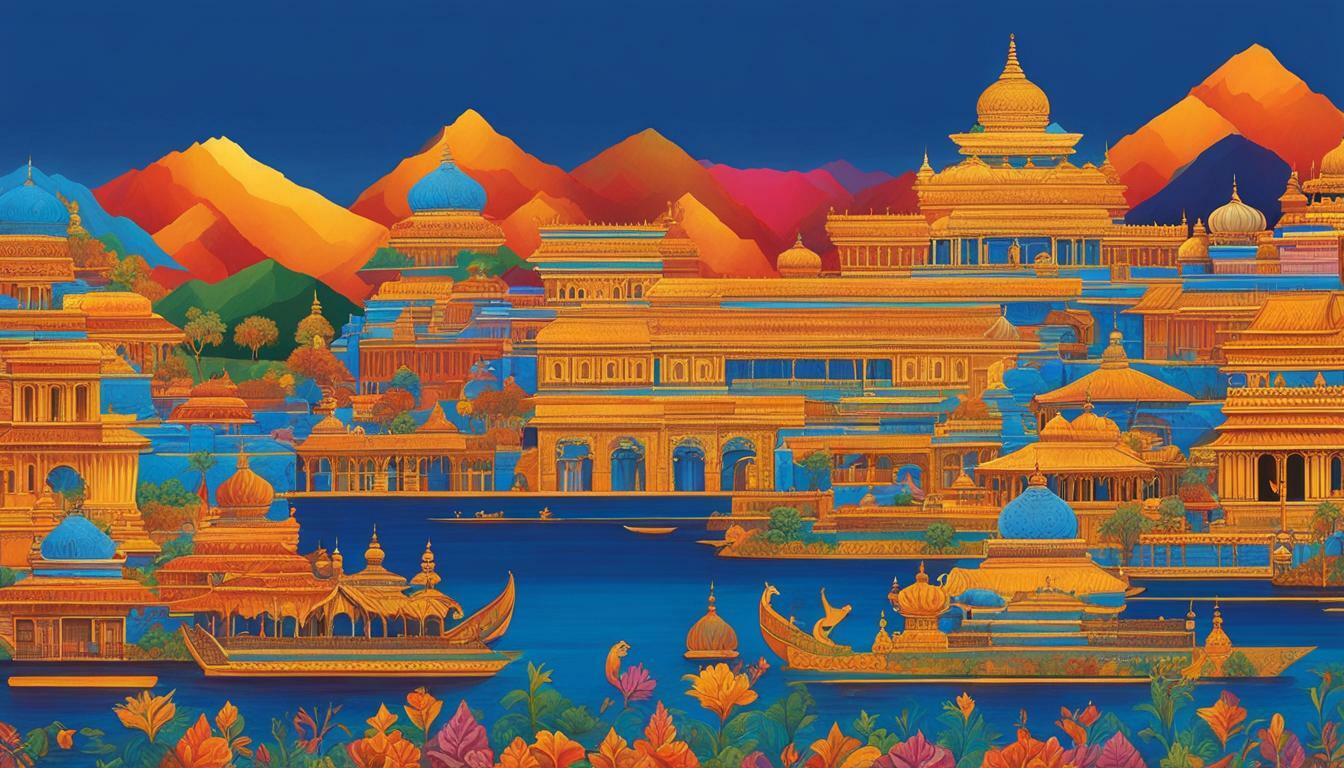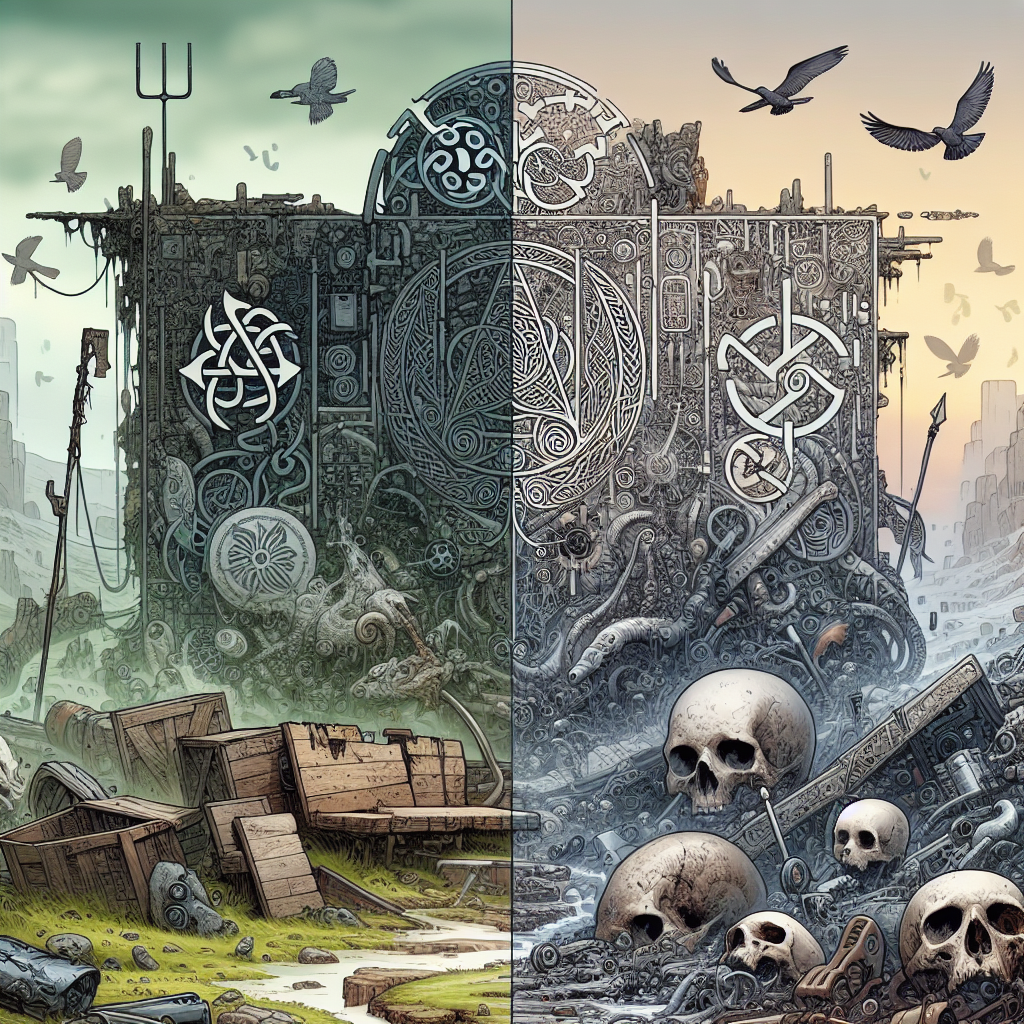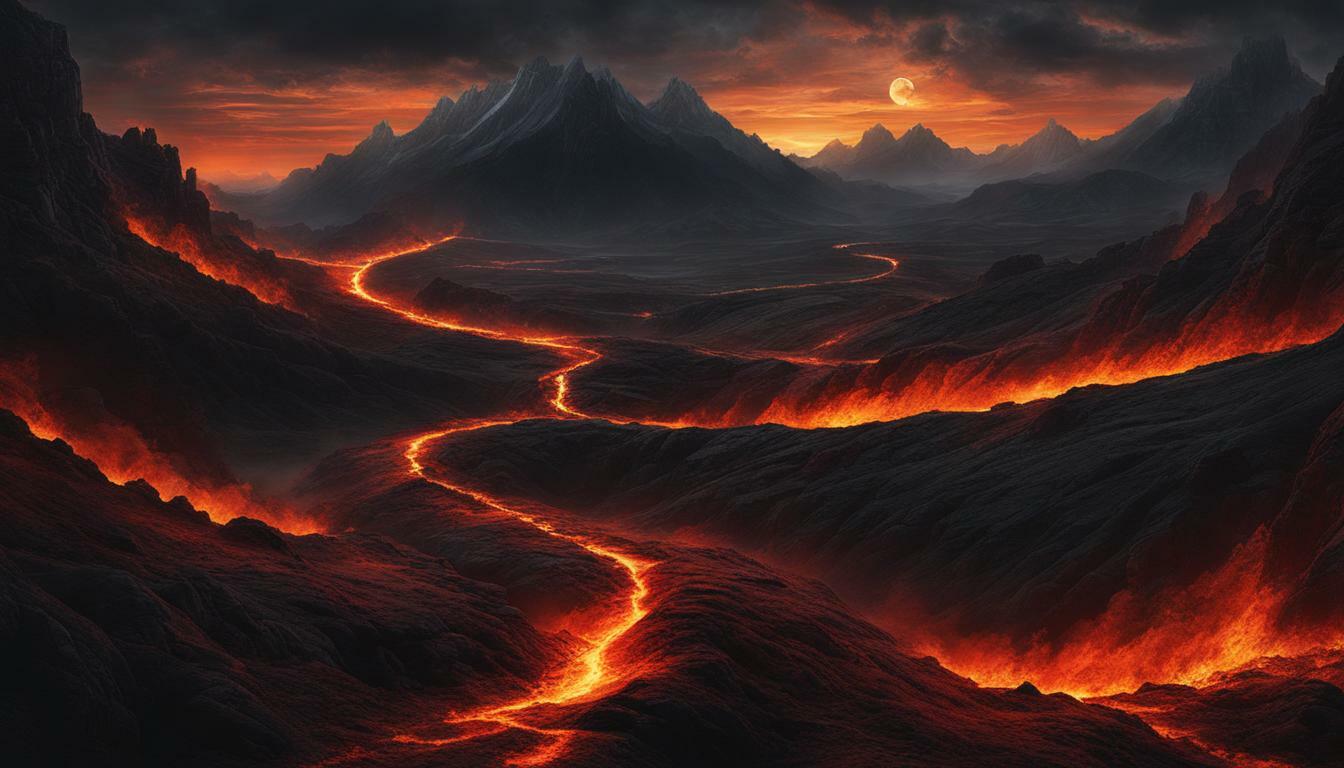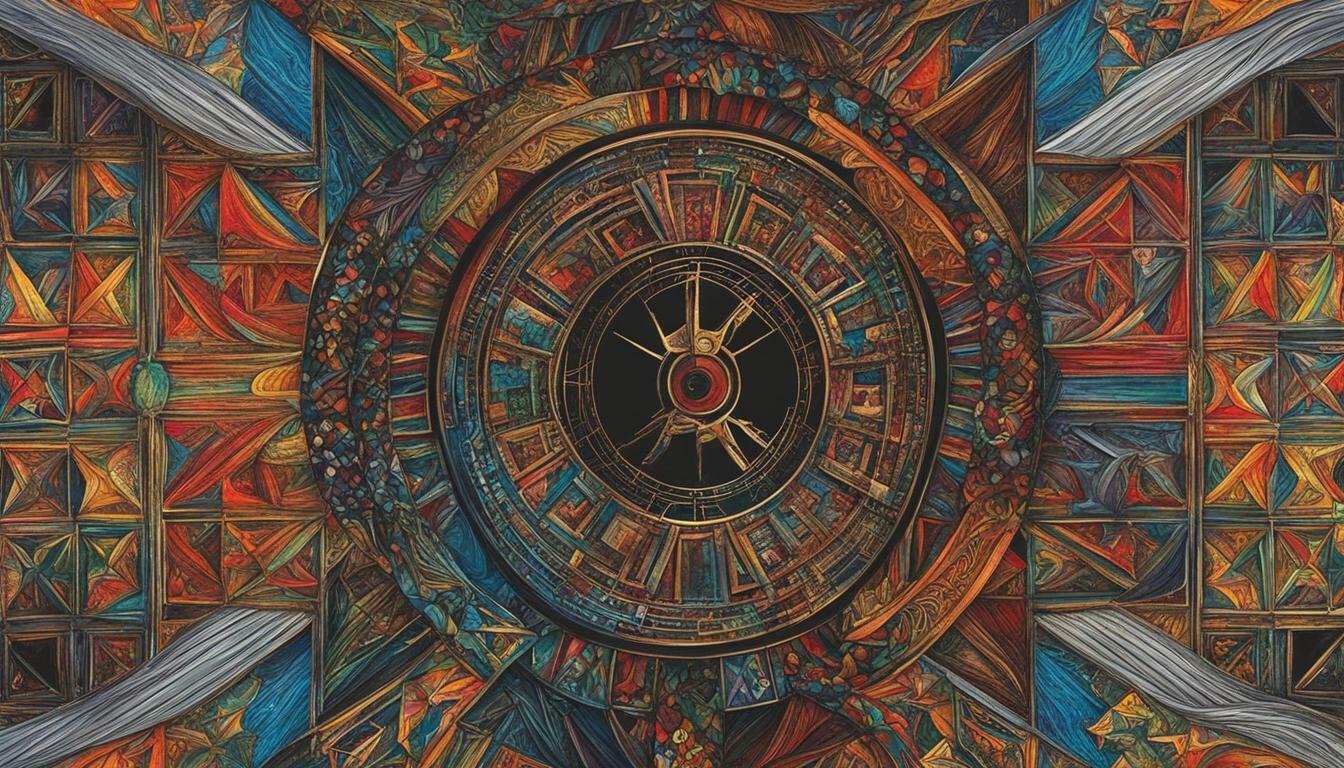Swarga and Vaikuntha are two distinct realms in Hindu mythology, each with its own characteristics and significance in Hindu theology. Swarga is the heavenly realm where demigods and pious souls who have performed virtuous acts on earth reside. It is controlled by demigods such as Indra and offers sensual pleasures and temporary happiness. However, it is still within the material creation and is subject to birth, death, old age, and disease. On the other hand, Vaikuntha is the spiritual realm presided over by Lord Krishna and His different expansions. It is a place of eternal bliss and is beyond the boundaries of the material universe. Vaikuntha is not controlled by demigods but by Lord Krishna and the liberated souls who have attained spiritual perfection. It offers unlimited pleasure through loving devotional service and is free from any shortcomings or the cycle of birth and death. Therefore, the ultimate goal of life should be to go to Vaikuntha rather than Swarga.
Key Takeaways:
- Swarga is the heavenly realm controlled by demigods such as Indra, offering temporary pleasures and subject to birth and death.
- Vaikuntha is the spiritual realm presided over by Lord Krishna, offering eternal bliss and unlimited pleasure through devotional service.
- Swarga and Vaikuntha have different characteristics, with Swarga being within the material creation and Vaikuntha being beyond the material universe.
- Attaining Vaikuntha is considered the ultimate goal in Hinduism.
- Vaikuntha is not controlled by demigods but by Lord Krishna and the liberated souls.
Characteristics of Swarga
Swarga is the heavenly realm in Hindu mythology where demigods and virtuous souls reside, offering temporary pleasures and happiness. It is a realm within the material creation, governed by demigods like Indra. In Swarga, one can experience sensual pleasures and enjoy the fruits of virtuous actions performed on Earth. However, it is important to note that Swarga is not eternal and is subject to the cycle of birth, death, old age, and disease. The pleasures in Swarga are temporary and do not offer everlasting bliss.
In Swarga, there are celestial beings and divine beings who enjoy the luxuries and delights of this heavenly realm. They revel in the beauty of their surroundings and partake in heavenly feasts, indulging in exquisite food and drinks. Swarga is described as a place of opulence and abundance, where every desire can be fulfilled. However, it is crucial to understand that these pleasures are fleeting and do not provide the ultimate liberation from the material world.
It is said that those who reside in Swarga eventually exhaust their accumulated merits and must return to the mortal realm to continue their journey. Swarga serves as a temporary stopover for virtuous souls to experience the fruits of their good deeds before they are born again on Earth. While Swarga offers a taste of heavenly delights, it falls short when it comes to providing everlasting happiness and liberation from the cycle of birth and death.
Table: Characteristics of Swarga
| Characteristics | Explanation |
|---|---|
| Location | Heavenly realm within the material creation |
| Ruled By | Demigods like Indra |
| Nature of Pleasures | Sensual and temporary |
| Duration | Subject to birth, death, old age, and disease |
| Role | Temporary reward for virtuous actions on Earth |
In conclusion, Swarga is a heavenly realm in Hindu mythology where demigods and virtuous souls enjoy temporary pleasures and happiness. It provides a glimpse into the rewards of virtuous actions but falls short in offering everlasting bliss and liberation from the material world. To attain true eternal happiness, one must aspire to reach Vaikuntha, the spiritual realm presided over by Lord Krishna and His divine expansions.
Limitations of Swarga
Despite its heavenly nature, Swarga has limitations as it exists within the material creation, making it subject to the cycle of birth and death, and lacking eternal bliss. While Swarga is a realm of opulence and pleasure, it is still part of the material universe and thus subject to the laws of this realm. This means that even in Swarga, one must undergo the process of birth, death, old age, and disease. The pleasures and happiness experienced in Swarga are temporary and fleeting, not offering lasting fulfillment.
In Swarga, demigods such as Indra hold control and enjoy the material opulence available there. However, their reign is not eternal, and they too are bound by the laws of the material world. The position of Indra and other demigods can be subject to change, as they may be replaced by others in the cycle of birth and death.
Moreover, the enjoyment in Swarga is limited to the sensual pleasures offered by the material realm. These pleasures are inherently temporary and do not provide true and lasting happiness. While Swarga may offer a higher standard of living compared to the earthly realm, it still falls short of providing the eternal bliss that the soul seeks.
It is important to recognize the limitations of Swarga and seek a higher realm that is beyond the material creation. Vaikuntha, the spiritual realm presided over by Lord Krishna, offers a superior alternative. In Vaikuntha, there is no suffering, birth, death, or disease. The pleasure and bliss experienced in Vaikuntha are eternal and transcendental, arising from engaging in loving devotional service to Lord Krishna and His expansions. This spiritual realm is not controlled by demigods but by Lord Krishna Himself, making it the ultimate destination for those seeking permanent liberation from the material world.
| Swarga | Vaikuntha |
|---|---|
| Subject to birth, death, old age, and disease | Free from the cycle of birth and death |
| Temporary pleasures and happiness | Eternal bliss and unlimited pleasure |
| Controlled by demigods | Presided over by Lord Krishna and liberated souls |
Characteristics of Vaikuntha
Vaikuntha, in Hindu mythology, is the spiritual realm ruled by Lord Krishna and His expansions, providing eternal bliss and unlimited pleasure through loving devotional service. It is a place where material limitations and the cycle of birth and death cease to exist, allowing souls to experience the highest state of spiritual liberation.
In Vaikuntha, everything is permeated with divine love and harmony. The atmosphere is filled with the melodious sounds of celestial music, and the air is fragrant with the sweet aroma of flowers. The effulgence of Lord Krishna illuminates every corner, creating a sublime and enchanting environment for all who reside there.
In this divine abode, time is eternal and flows blissfully, without the constraints and limitations experienced in the material world. The inhabitants of Vaikuntha, both Lord Krishna and His devotees, engage in constant devotional service, experiencing immeasurable joy and contentment.
The loving relationships between Lord Krishna and His devotees are the heart of Vaikuntha. The residents of this spiritual realm relish in a deep and personal connection with the Supreme Lord, engaging in various devotional activities such as singing His glories, offering prayers, and dancing in His divine presence.
| Characteristics of Vaikuntha | Summary |
|---|---|
| Eternal bliss and unlimited pleasure | Vaikuntha offers an everlasting state of happiness and unending joy through devotional service. |
| Freedom from material limitations | In Vaikuntha, the cycle of birth and death, along with other material shortcomings, no longer exist. |
| Divine atmosphere | The spiritual realm is filled with celestial music, fragrant flowers, and the illuminating presence of Lord Krishna. |
| Timeless existence | Unlike the material world, time in Vaikuntha flows endlessly, allowing for eternal bliss and divine interactions. |
| Intimate relationship with the Supreme Lord | The residents of Vaikuntha enjoy a deep and personal connection with Lord Krishna through constant devotional service. |
The distinctions between Swarga and Vaikuntha are clear. While Swarga offers temporary pleasures and is subject to material limitations, Vaikuntha provides eternal bliss and unlimited pleasure through a loving relationship with Lord Krishna. Understanding the characteristics of Vaikuntha and the significance it holds in Hindu mythology can inspire individuals to strive for spiritual liberation and make Vaikuntha their ultimate goal.
Liberation from Material World in Vaikuntha
Vaikuntha offers liberation from the material world, which is characterized by shortcomings and the cycle of birth and death, providing the ultimate goal of life for devotees.
In Vaikuntha, everything is eternal and free from the limitations of the material realm. It is a place of unlimited pleasure and bliss, where one can engage in loving devotional service to Lord Krishna and His various expansions. Unlike Swarga, which is controlled by demigods and subject to the transient nature of the material creation, Vaikuntha is governed by Lord Krishna Himself and liberated souls who have achieved spiritual perfection.
Devotees in Vaikuntha experience an everlasting relationship with the Supreme Lord and enjoy the unending happiness that comes with it. This spiritual realm is free from birth, death, old age, and disease, allowing devotees to exist eternally in a state of pure bliss. It is a transcendental abode that surpasses the limitations of the material world and offers an eternal haven for those seeking liberation.
| Swarga | Vaikuntha |
|---|---|
| Controlled by demigods | Controlled by Lord Krishna and liberated souls |
| Temporary pleasures | Eternal bliss |
| Subject to birth, death, old age, and disease | Free from such limitations |
| Material creation | Spiritual realm |
While Swarga may offer temporary happiness and sensual pleasures, Vaikuntha is the ultimate destination for those seeking liberation from the material world. Understanding the distinctions between these two realms in Hindu theology sheds light on the higher purpose of life and the eternal bliss that can be achieved through devotion to Lord Krishna in Vaikuntha.
Key Differences Between Swarga and Vaikuntha
The key differences between Swarga and Vaikuntha lie in their nature, control, pleasures, limitations, and ultimate significance, with Vaikuntha being the superior realm. Swarga, also known as the heavenly realm, is where demigods and virtuous souls reside. It offers temporary happiness and sensual pleasures. However, Swarga is within the material creation and is subject to birth, death, old age, and disease. It is controlled by demigods like Indra.
On the other hand, Vaikuntha is the spiritual realm presided over by Lord Krishna and His different expansions. It is a place of eternal bliss and is beyond the material universe. Vaikuntha is not controlled by demigods but by Lord Krishna and the liberated souls who have attained spiritual perfection. It offers unlimited pleasure through loving devotional service and is free from any shortcomings or the cycle of birth and death.
“Swarga may provide temporary happiness, but it cannot offer the eternal bliss that Vaikuntha provides through loving service to Lord Krishna.”
In terms of limitations, Swarga is impermanent, and its pleasures are temporary. It cannot offer lasting happiness or liberation from the material world. In contrast, Vaikuntha is eternal and offers the opportunity for complete liberation from the cycle of birth and death. Attaining Vaikuntha is considered the ultimate goal of life for those seeking spiritual fulfillment.
| Swarga | Vaikuntha |
|---|---|
| Temporary happiness | Eternal bliss |
| Pleasures subject to birth, death, old age, and disease | Unlimited pleasure |
| Controlled by demigods like Indra | Controlled by Lord Krishna and liberated souls |
| Within the material creation | Beyond the material universe |
| Impermanent | Eternal |
In conclusion, while Swarga may provide temporary happiness and sensual pleasures within the material creation, Vaikuntha offers eternal bliss and unlimited pleasure beyond the material universe. It is controlled by Lord Krishna and liberated souls, provides liberation from the cycle of birth and death, and is considered the superior realm in Hindu mythology. The ultimate goal of life is to attain Vaikuntha and experience the eternal love and bliss offered by Lord Krishna.
Conclusion
In Hindu mythology, Swarga and Vaikuntha represent two distinct realms with significant differences, ultimately highlighting Vaikuntha as the superior realm and the ultimate goal for devotees.
Swarga, the heavenly realm, is inhabited by demigods and those who have performed virtuous acts on earth. Controlled by demigods like Indra, it offers temporary pleasures and sensual happiness. However, Swarga is still within the material creation and subject to the cycle of birth, death, old age, and disease. The pleasures it offers are impermanent.
On the other hand, Vaikuntha is the spiritual realm presided over by Lord Krishna and His divine expansions. It is a place of eternal bliss and unlimited pleasure, beyond the boundaries of the material universe. Vaikuntha is not controlled by demigods, but by Lord Krishna and the liberated souls who have attained spiritual perfection. It offers everlasting joy through loving devotional service and is free from any shortcomings or the cycle of birth and death.
Therefore, while Swarga may provide temporary enjoyment, attaining Vaikuntha should be the ultimate goal. It is in Vaikuntha where devotees can experience eternal happiness and escape the limitations of the material world. By surrendering to Lord Krishna and engaging in devotional service, one can aspire to reach Vaikuntha, the superior realm of eternal bliss and divine love.
FAQ
What is the difference between Swarga and Vaikuntha in Hindu mythology?
Swarga is the heavenly realm where demigods and pious souls reside, offering temporary pleasures and controlled by demigods such as Indra. On the other hand, Vaikuntha is the spiritual realm presided over by Lord Krishna, offering eternal bliss and unlimited pleasure through loving devotional service.
What are the characteristics of Swarga?
Swarga is a heavenly realm within the material creation. It is a place where demigods and virtuous souls who have performed good deeds on earth reside. Swarga offers sensual pleasures and temporary happiness.
What are the limitations of Swarga?
Despite the temporary pleasures it offers, Swarga is still within the material creation and is subject to birth, death, old age, and disease. The happiness experienced in Swarga is impermanent and cannot provide eternal bliss.
What are the characteristics of Vaikuntha?
Vaikuntha is the spiritual realm presided over by Lord Krishna and His different expansions. It is a place of eternal bliss and unlimited pleasure through loving devotional service. Vaikuntha is beyond the boundaries of the material universe and is not controlled by demigods.
How does Vaikuntha liberate from the material world?
Vaikuntha is free from any shortcomings or the cycle of birth and death. Those who attain Vaikuntha experience liberation from the material world and its limitations. The ultimate goal of life is to reach Vaikuntha and enjoy eternal bliss in the presence of Lord Krishna.
What are the key differences between Swarga and Vaikuntha?
The key differences between Swarga and Vaikuntha lie in their nature, control, pleasures, limitations, and ultimate significance. Swarga offers temporary pleasures and is controlled by demigods, while Vaikuntha offers eternal bliss and is presided over by Lord Krishna. Vaikuntha is the superior realm compared to Swarga.
 Skip to main content
Skip to main content


